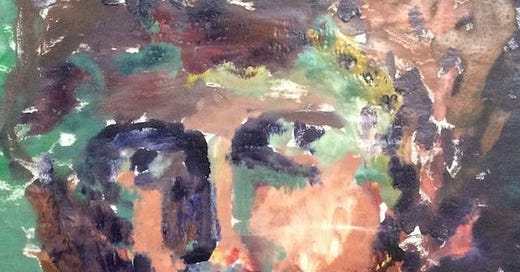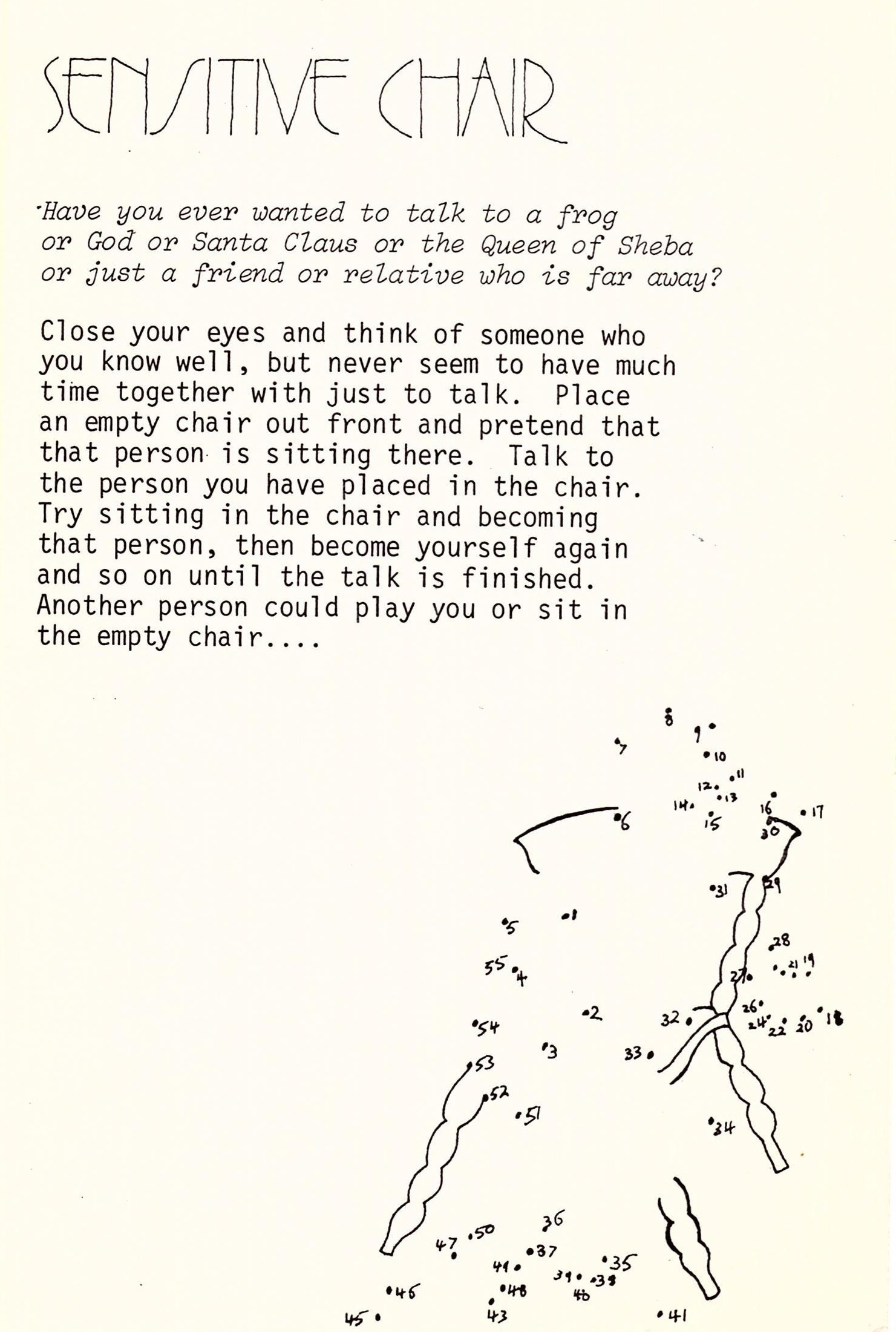As a child in school, I seemed to live outside the narrative both in the classroom and the playground. At home too, I didn’t seem to belong. Although I played the Ugly One for a theatre company, as a writer I hadn’t explored this theme, nor the effect it has had on me as an adult until I found myself improvising with a small crowd in a square room.
Lucy Trevitt, the Portraits and Stories workshop facilitator (Lapidus conference 2005), had brought bin bags filled with various hats, coats, scarves, fancy dresses, lacy & frilly bits, shawls & gloves; she distributed the stuff willy-nilly on tables around the walls. I wondered, “Is this a jumble sale, a refugee camp or what?” We were simply asked to play, try on clothes, free-associate, and thus allow characters and scenarios to emerge from our unconscious mind.
I had no expectations and at first nothing seemed to happen, just my usual nauseous feeling when I go into second-hand shops and the awkwardness I felt in school. After several dressings and undressings, I put on a shiny silk waistcoat, trilby hat and a pair of patent leather spats. Something began to happen. I started giving orders to everyone I met, in a mid-western American accent. A character gradually came to life through spontaneous inter-actions: I concluded that I was a pimp managing two whorehouses and a troupe of rent boys in a prairie town in the USA.
I hadn’t a clue how or from where this poser arose from my unconscious – until the following day at another workshop on family histories (Sarah Hymas: Ancestral Bones) where I chose to write about my uncle, my mother’s brother whom I only met a few times when I was very young. We were encouraged to do non-stop timed writing for ten minutes. The raw factual writing surprised me, and I felt shame. Later I realised the facts were my mother’s voice, what she had told me about my uncle. She hated him but I loved him, secretly admired him and all his tattoos. Afterwards, while whisper-reading aloud to a partner, I made the connection to the earlier role-play. Later I developed the notes from both workshops into the following short comparative biography – some of it based on our family mythology. I still wonder how much is fact and how much fiction.
Me or Uncle CC? Everyone called him CC; his real name was Clarence Cecil Short. I’m blacker because I left America and never came back. CC is less black. After touring the world in the Merchant Navy he came back. Inherited grandma Short’s house – did it up and sold it then bought two more houses. Eventually he bought the whole town of South Pekin, Illinois. He was a real-estate man, a slum landlord during the depression. He owned two whore houses and a herd of rent boys. During his time in the Merchant Navy, he collected tattoos all over his body, even his penis, but you can only see the design when it’s erect – I won’t go into detail. He was buried 15 years ago with a Swiss bank account number tattooed somewhere on his body – so the rumour goes. My mother employed a detective to try and access the account and get the money. He was probably worth millions.
I started turning black when I failed everything at school. But maybe I’m blacker than CC because I fought for the voting rights of Afro-Americans, civil liberties for Chicanos, better pay for Mexican migrant workers in California, and crosses were burned on my lawn in Bakersfield after I infiltrated the John Birch Society (the western equivalent of the Klu Klux Klan); and because I was convicted of treason and given a five-year prison sentence and a $10,000 fine for helping people desert from the army, finding them safe homes in Europe.
I was living in Paris at the time – 1967 – at the height of the Vietnam war, the peace group was based at Shakespeare & Company on the left bank where we printed anti-war flyers and posters. And because I never went to prison and never paid-up. Instead, an English woman agreed to marry me, which prevented the US government from extraditing me. Because I burned my passport. Because I burned the American flag. Over a 12-year period I became really black, or maybe red in the eyes of the FBI who visited my parents every six months. And because I’ve never had a proper job. Because I’ve been divorced twice. And blacker now because I’m living with a German woman with a Sanskrit name (or is it Pali?) and have a British passport.
But when we visited Uncle CC in South Pekin in 1949, he took me and my sister (she’s the white sheep, a certified public accountant) to a big department store like Macy’s and he said “ya can have anything ya want.” He was my hero then and my horse when I was geared up in my Roy Rogers cowboy suit, hat and spurs – the very suit I wore when I started thieving at Dick’s Supermarket on the corner of 4th and Orchard in San Jose. I never got caught but I slowly turned black from inside out.
Since this piece was published, it has generated an enormous amount of comment from close friends and family. My first wife, the English woman, was upset because there was so little about her and the matter-of-fact tone made her feel unloved. So she sent me copies of letters I had written at the time, her own diary entries about the circumstances leading up to our marriage. What became apparent is how two people’s shared life experience can be remembered completely differently – and even when recorded at the time, still different. I thought she “offered” to marry me because I was threatened with a prison sentence; she thought I asked and she “agreed”. At her request I changed that one word in the above text. And the writing, I believe, has led to a better understanding between us. The facts as I see them may be fiction to another.
The more I write in a biographical vein the less I know what is true. “Is it true, did it really happen that way” children ask the storyteller. She offers a quizzical smile. When I was nearly finished writing a dramatic monologue of my mother’s life story in the first person present tense, I realised her story would have been very different if she had been speaking to someone other than myself. Did she tell me the story she thought I wanted to hear? How many hidden characters lurk inside each human being waiting to be released through playing and writing? And how much are they transformed to our own liking when released?
.
Butler L. (2008) Butterfly Bones. Ullapool, Ross-shire: Two Ravens Press
(Black Sheep in the Family, introduction to Butterfly Bones, was initially sent to the publishers as a joke; they decided to use it as biographical notes)





